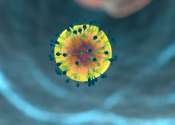Understanding memory loss in Alzheimer's disease
Members of the Synaptic Dysfunction and Disease group at the Institute of Biomedicine of Seville (IBiS), led by researchers Francisco Gómez Scholl and Amalia Martínez Mir, recently published the results of their research ...
Jan 18, 2022
0
94









